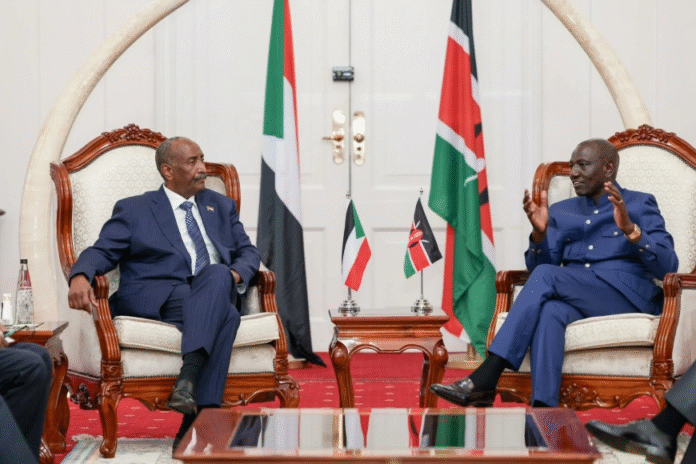
Kenya has firmly denied allegations that it supplied weapons used in the ongoing conflict in Sudan, distancing itself from claims made in a recent investigative report aired by NTV and supported by open-source intelligence group Bellingcat.
Speaking in Nairobi on Saturday, June 15, Government Spokesperson Isaac Mwaura dismissed the accusations as unfounded, maintaining that Kenya’s role in Sudan is strictly humanitarian and diplomatic.
“Kenya is supporting the peace process through IGAD. Any other assertion is mere conjecture. We have no business with the claims being made out there,” Mwaura stated.
The exposé featured video footage allegedly showing ammunition crates marked with Kenyan labels inside a Rapid Support Forces (RSF) weapons depot near Khartoum. Some of the markings appeared to link the crates to Kenya’s Ministry of Defence. The Sudanese Armed Forces later displayed the suspected arms in viral online footage.
However, Kenya’s Ministry of Defence disowned the crates and disputed their authenticity. “Upon examination of the photographs provided, we wish to state that we do not recognise the crates nor the inscriptions on them,” the Ministry said in a statement.
Mwaura reiterated that Kenya is focused on promoting peace and supporting conflict-affected civilians in Sudan, revealing that the government had contributed Ksh256 million (approximately USD 2 million) to humanitarian and peace efforts.
“Kenya is neutral and is willing to host both the Sudan Armed Forces and the Rapid Support Forces for dialogue and negotiations,” he said, adding that the government supports a peace framework led by the African Union and the United Nations.
Tensions between Kenya and Sudan have escalated in recent months, especially after RSF representatives held a meeting in Nairobi on February 18, an event seen by Khartoum as legitimising a rebel group. In response, Sudan recalled its ambassador Kamal Jubbara from Kenya.
The diplomatic row intensified in March when Sudan banned all imports from Kenya, cutting off trade via air, sea, and land. “The import of all products from Kenya via all ports, crossings, airports, and entry points is suspended starting from this date until further notice,” read a letter signed by Sudan’s Acting Minister of Trade and Supplies, Omar Ahmed Mohamed Ali.
While Kenya has denied facilitating any military involvement in Sudan, questions remain about the origin of the weapons displayed in the investigation. The Ministry of Defence did not provide detailed information on arms transfers, exports, or imports that could clarify the controversy.
Kenya continues to urge for calm and a unified peace process in Sudan, positioning itself as a neutral partner committed to peace, regional stability, and humanitarian aid.




![SHA Suspends Dozens of Health Facilities Over Alleged Fraud [LIST]](https://citymirror.ke/wp-content/uploads/2024/12/image-14-218x150.png)

